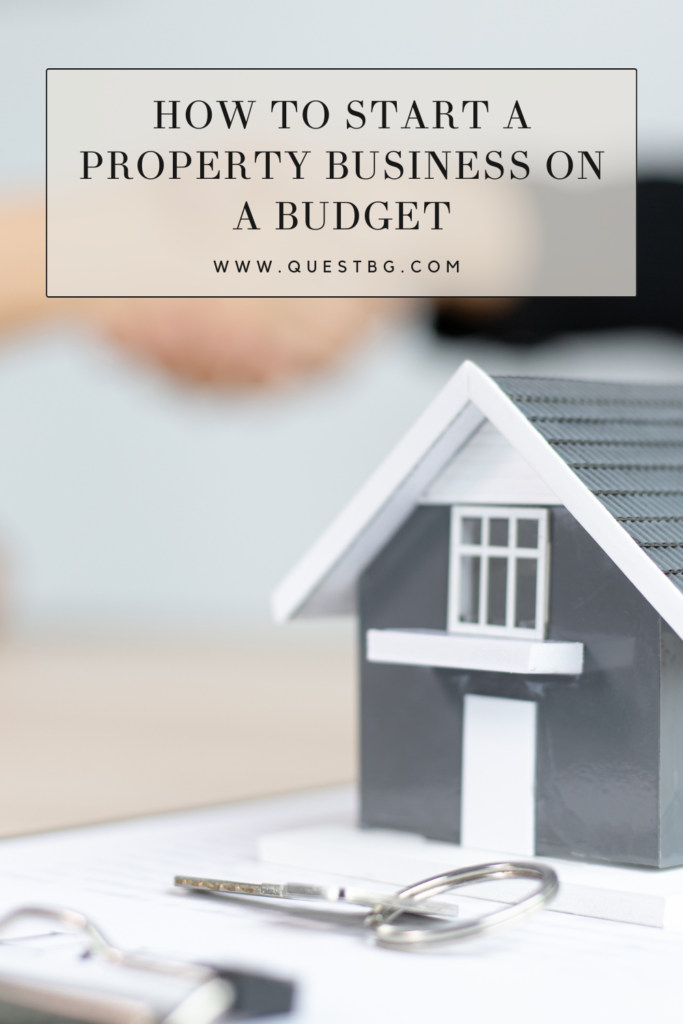
How to Start a Property Business on a Budget
Starting a property business may seem like a daunting task, especially if you’re working with a limited budget. However, with strategic planning and a bit of creativity, it’s entirely possible to kickstart your property investment journey without breaking the bank. In this blog post, we’ll explore key aspects of starting a property business on a budget, including funding your first investment property, understanding the differences between buy to let, rent to rent, and other business models, and providing tips on how to start a property business on a budget.

Types of Property Businesses You Can Start on a Budget

Funding Your First Investment Property
1. Save and Cut Costs:
The first step in funding your initial property investment is to diligently save money. Analyse your current spending habits and identify areas where you can cut costs. Sacrifices now can lead to substantial rewards later.
2. Explore Government Schemes:
Many governments offer schemes and incentives to encourage property investment, especially for first-time buyers. Research local programs, grants, or tax breaks that might be available in your area.
3. Partnering and Joint Ventures:
Consider partnering with others who share your property investment goals. Pooling resources with a partner or engaging in a joint venture can help you access more significant funds and share the risks and rewards.
Different Ways to Run a Property Business
1. Buy to Let:
Buying a property with the intention of renting it out can provide a steady income stream. It involves purchasing a property, usually with a mortgage, and letting it out to tenants. Rental income covers mortgage payments and potentially generates profit.
2. Rent to Rent:
Rent to rent is an alternative model where you lease a property from a landlord and then sublet it to tenants, typically at a higher rental rate. This strategy requires negotiation skills and a solid understanding of local rental markets.
3. Fix and Flip:
This approach involves buying a property below market value, renovating it, and selling it at a higher price. While it may require more initial capital, the potential for significant returns makes it an attractive option for some investors.
4. Property Crowdfunding:
Joining a property crowdfunding platform allows you to invest in real estate with relatively small amounts of money. This method lets you diversify your investments across multiple properties, mitigating risks.

Tips for Buying Your First Investment Property on a Budget
1. Start Small:
Consider smaller, more affordable properties for your first investment. Starting small allows you to gain experience and build a solid financial foundation before taking on more significant projects.
2. Creative Financing:
Explore alternative financing options, such as seller financing or lease options. These arrangements can be negotiated with property owners and may offer more flexibility than traditional bank loans.
3. Build a Strong Credit History:
A good credit history can open doors to favourable loan terms. Make sure your credit report is in good shape and take steps to improve your credit score if necessary.
4. Education and Networking:
Attend local property investment seminars, workshops, and networking events. Building relationships with experienced investors may lead to valuable insights, partnerships, or even financial support.
Starting a property business on a budget requires careful planning, resourcefulness, and a willingness to explore various investment models. By saving diligently, considering alternative funding options, and choosing the right business model for your goals, you too can launch a successful property investment business without breaking the bank. Remember, the key is to start small, learn along the way, and gradually scale your property business as your experience and resources grow.
POST A COMMENT
You must be logged in to post a comment.




